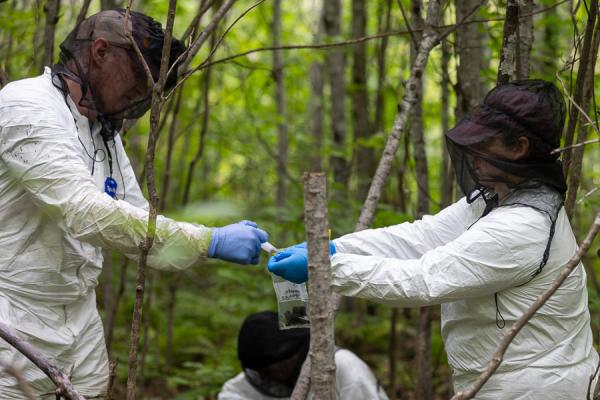Newly funded: Identifying new immunotherapies for sarcomas in dogs and people
March 26, 2021

A team of University of Minnesota researchers led by Jessica Lawrence, DVM, DACVIM, DACVR, DECVDI, and Daniel Vallera, PhD, recently received $500,000 from the V Foundation for Cancer Research to investigate the B7-H3 protein’s role in the immune response in canine and human cancer. Many adult and pediatric tumor types overexpress the B7-H3 protein, including soft tissue and bone sarcomas. The protein dampens an anti-cancer immune response and is linked to radiation therapy resistance. Pet dogs commonly develop sarcomas and their tumors behave like human sarcomas. Applying new treatment innovations to pet dog models often advances human therapies and outcomes. If researchers can identify how to “turn the protein off” in dogs, they may be able to ultimately impact tumor control for both dogs and humans. With this funding, the research team will explore how to use a new designer drug specifically created to target B7-H3 in dogs to “kick start” the anti-cancer immune response. Since radiation therapy can also cause an anti-cancer response for a short period of time, scientists want to learn how to use the two treatments together. In this study, the researchers will first look at how stereotactic body radiation therapy affects the anti-cancer immune response in dogs with sarcomas. They will then establish a safe and active dose for their new anti-B7-H3 therapy in dogs with sarcomas and evaluate how the drug alters radiation response. The funding began in January 2021 and will last through January 2023.
Photo courtesy of Nathan Hanna on Unsplash


